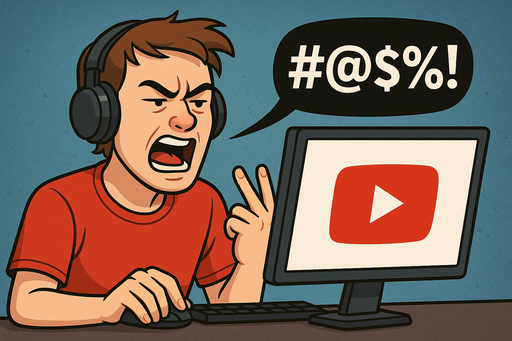Video platform YouTube announced a significant softening of policy regarding profanity in videos, allowing content creators to use strong language without monetization restrictions when certain conditions are met.

G. Ostrov
Google has made cardinal changes to YouTube's policy regarding the use of profanity in video content. The new rules significantly soften restrictions on monetizing videos containing strong language, which could substantially impact the income of many bloggers and content creators.
According to the updated rules, content creators can now use profanity in their videos without automatic monetization restrictions. However, this permission applies when certain conditions are met: profanity must not be directed at specific people as insults, and should not dominate the video's content.
Changes also affected time restrictions: while previously even a single use of profanity in the first 15 seconds of a video could lead to demonetization, the platform has now become more lenient toward such content. Creators gained more freedom in expressing emotions and natural speech.
These innovations resulted from a lengthy dialogue between YouTube and the content creator community, who repeatedly complained about overly strict moderation algorithms. Many bloggers noted that previous rules forced them to artificially censor their speech, which negatively affected content authenticity.
YouTube representatives emphasize that the changes don't mean complete permissiveness. The platform will continue to strictly control content containing hate speech, threats, or discriminatory statements. The goal of the innovations is to find a balance between freedom of expression and maintaining a safe environment for all users.
The blogger community's reaction to the changes has been mixed. Some creators welcome greater freedom in content, while others express concern that this could lead to decreased content quality and negatively affect child audiences.
The new rules are already in effect and apply to both new videos and already published content. YouTube plans to monitor the impact of changes on the platform and adjust policy in the future if necessary.
Detailed information about YouTube rules can be found on the official community guidelines page.
If you encounter any problems, contact us, we'll help quickly and efficiently!




